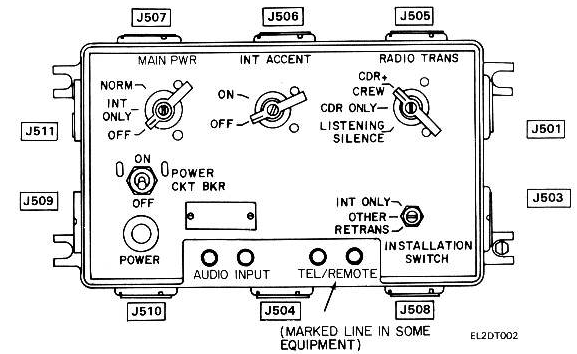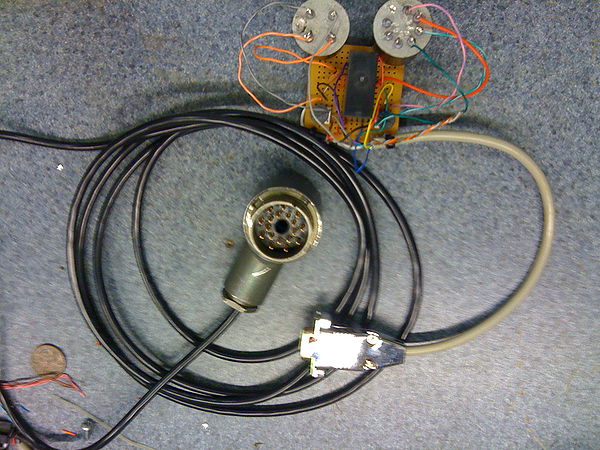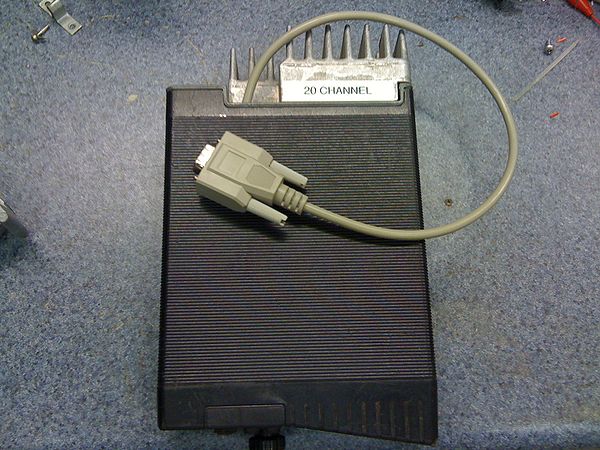Difference between revisions of "Integrating the VIC-1 with other equipment"
RadioNerds (talk | contribs) |
RadioNerds (talk | contribs) |
||
| Line 12: | Line 12: | ||
| + | [[File:AM-1780-1.png]] | ||
= Receive Only Inputs = | = Receive Only Inputs = | ||
Revision as of 03:02, 8 November 2011
Contents
Integration
Integrating the VIC 1 with other equipment is quite easy really.. there are some common connections that can be used. the biggest worry here will be to isolate the 12 volt radios and the 24 volt vic1, you cant simply hook these things together and expect them to not fry one another.
NOTE: One very important thing to note is that the VIC1 is 24 Volt and most Civilian radios are 12 Volt, you need to isolate them from each other if they are on connected to the system.
- There are some common things that people want to do...
-
- Hook up a FM radio, Satellite receiver, scanner, ipod, or other MP3 player. RX (receive) ONLY
- Hook up a Transceiver, like a CB, FRS/GMRS radio, Ham Radios etc. This is TX (Transmit) / RX
Receive Only Inputs
Using the "Audio Input or "Tele / Remote" Inputs
You can make a simple pigtail from an old set of headphones and wire your ipod straight to these jacks.
- Audio Input Jacks (left side)
- These are amplified and will give you more input volume
- Audio Ground (ring) connector to GND
- Tip to the other
- Tel/Remote jacks (right side)
- These are 600ohm input sources for other military gear, these will be too low for use in most cases
Using the J508 Power Jack
To integrate something that is RX only, the best thing to do is to use the J508 4 pin power jack. Although this is a power input when the intercom is in Internal (no military radio hooked up) mode, this is NOT used when a MT-1029 is on the system. This is because the VIC1 will get its power from the radio mount on J501 or J503. This plug doubles as an RX input source.
To hook up an input source simply use this hookup
NOTES: - Need to verify the impedance of T-1 to insure proper matching, this is really here for unity and to maintain isolation
To use the circuit above you simply need to provide audio to the audio inputs from a line-out source on the radio. Line out is desired because it is usually quite low, and a fixed level, you want the Vic1 to do the amplification. You could use a speaker out, but you need to be very careful not to give it too much volume, the VIC1 wont react well, it will clip (sound distorted) and overdrive the amp. I do use the same circuit above to plug in my ipod and it works perfectly as long as the volume is reasonable. You wont smoke it as along as your not attempting to slam 300 watts from an amp into it.
Transmit and Receive inputs
This is a much harder situation, as i stated before you cant simply start splicing things together to get this going, you will certainly smoke a radio. You need to isolate the audio in and out and the PTT key circuits from each other. fortunately there is a fairly straightforward method to do this.
SEE AM-1780 for Jack details
- TX / RX
- J501 or J503 must be used, they use the CX-4723 - 18 Pin Cable.
- RX only
- J508 or J510
- Common integration Diagrams
- Proper Isolated Interface for 12volt radios to Intercom with TX and RX
- Civilian Radio Connections to A (J501) or C (J503)
- Civilian Radio Connection to C-RX (J508)
- Nokia Style headset Connection to A (J501) or C (J503)
- Kenwood HT Connections to A (J501) or C (J503)
- Example of My integration
- These are some photos of my integration of the VIC1 with civilian radios, i used the circuit defined in Properly Hook Civilian Radio to VIC1
- ProtoType circuit and additional wiring.
- This uses the 18 Pin "C" Radio integration for full transmit and receive support. the DB9 plug is so that i can easily hook to many different radios that i have put a "pigtail" DB9 in.
This is one of the radios. In this case its a EF Johnson, business band radio, programmed with the GMRS/FRS frequency set.





